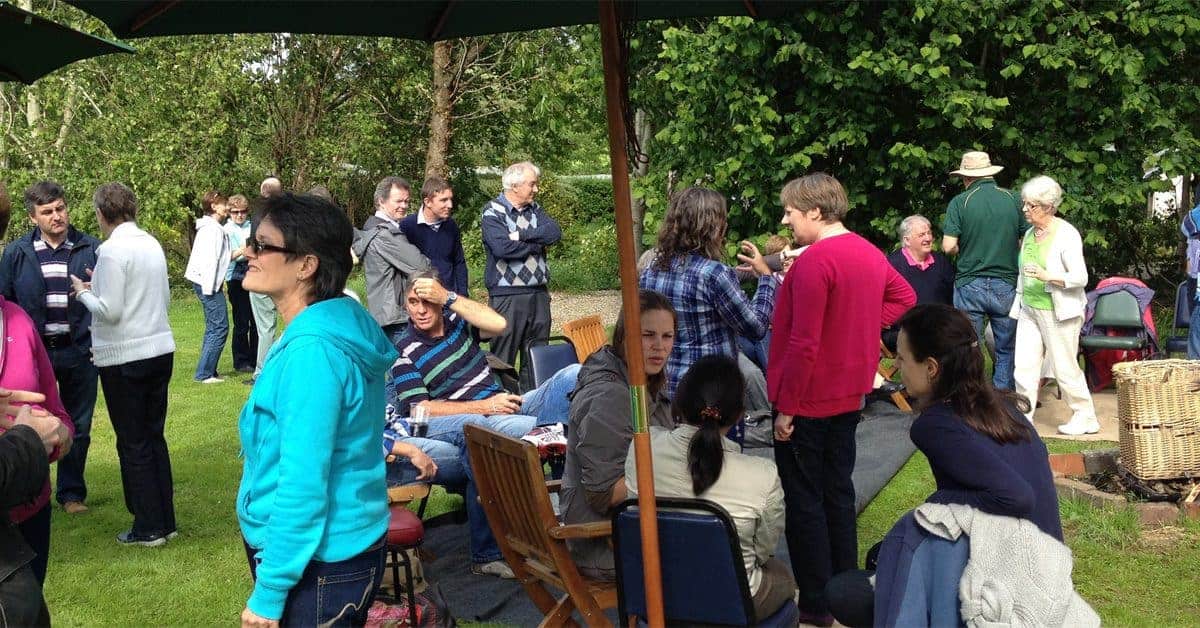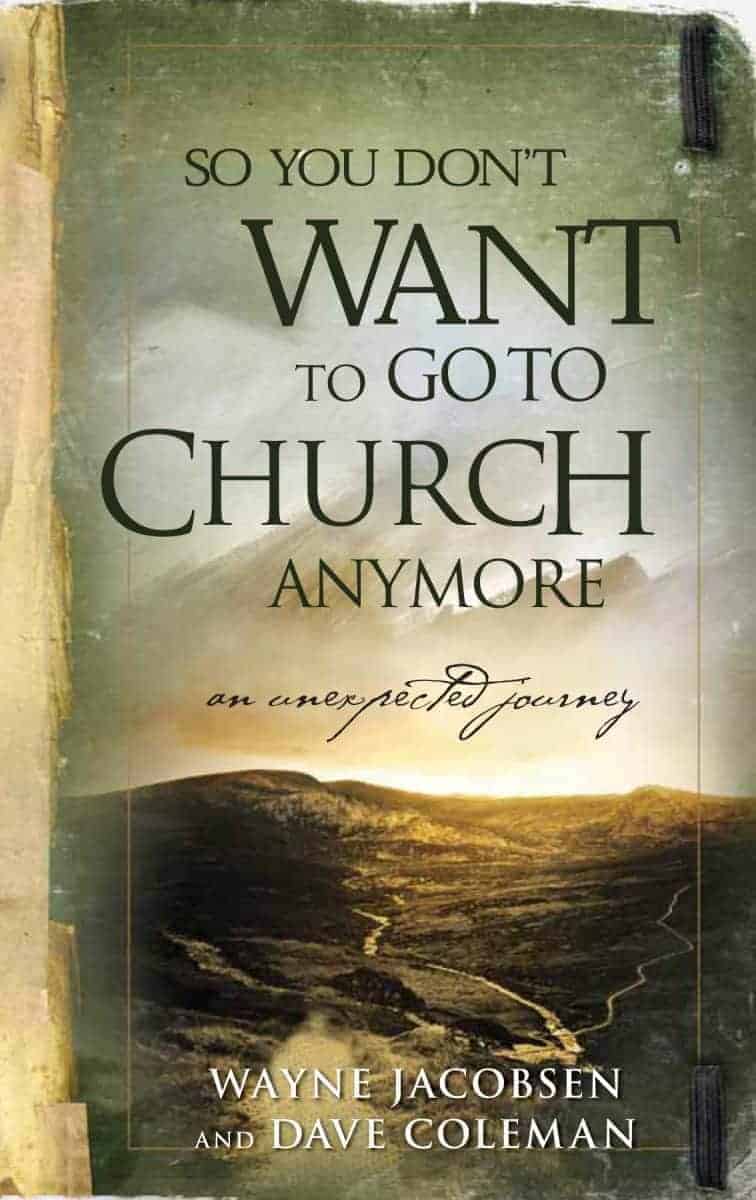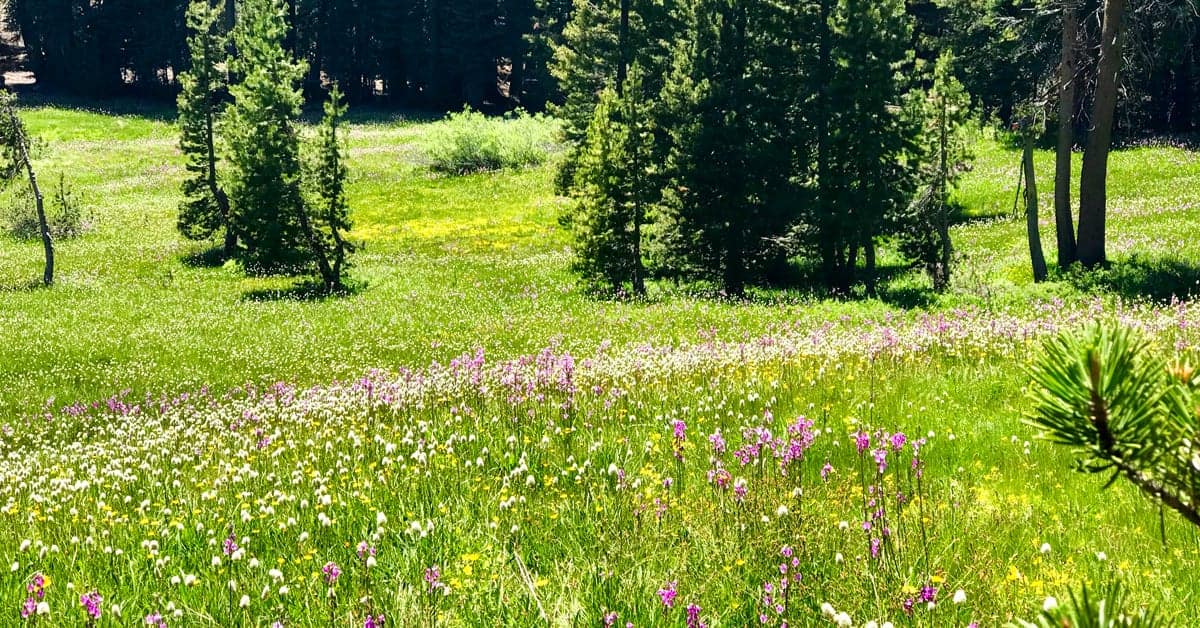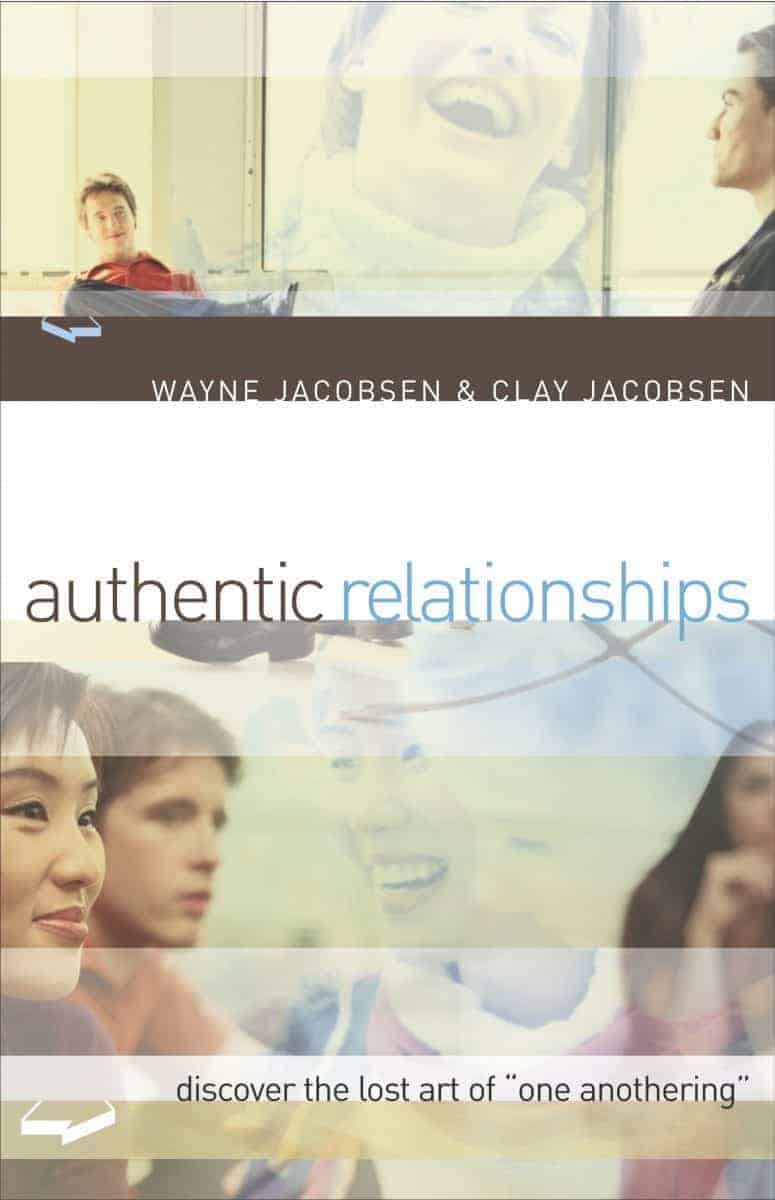By Wayne Jacobsen in a continuing series on The Phenomenon of the Dones.
The question is as ubiquitous as it is silly: “What Church do you go to?”
It’s almost always the first thing Christians ask each other when they meet and it is the most divisive question in all Christendom. We think identifying the particular tribe of Christian someone belongs to will tell us a lot about them. Are they Calvinist, Catholic, charismatic, Bible thumpers, high church or fundamentalist?
The truth is it tells us very little about people. It is an overly simplistic way to profile people with our stereotypical view of any group while it tells us nothing about them as individuals. It doesn’t tell us how deeply they are connected to Jesus, or whether they are thriving on their spiritual journey or withering away in despair. While the question causes some to swell with pride in their movement, others are apprehensive for the judgment their answer might incur.
For the 31 million Christians in America who are following Jesus though they no longer attend a formal congregation, answering that question is a dilemma. If you say you don’t, many will question the sincerity of your faith convinced that all true Christians belong to a local congregation. They make no room for a vibrant faith and an engaging experience of church life without the institutional map.
Recently someone I was just getting to know as they were feeling me out for some potential collaboration asked me that question. When my answer wasn’t satisfactory he asked a second question, “Do you have a community where you live? I knew he was giving me a chance to redeem myself by assuring him I belonged to some kind of Christian group, even if I wasn’t calling it “a church”.
I wasn’t trying to be difficult. We had just met and he was desperate to find some kind of box for me to fit into that would allow him affirm the validity of my faith. He could only do that if I belonged to a group with a name, a regular (hopefully weekly) meeting, and a specified doctrine.
I didn’t want to mislead him, but I tend to use words like this with intentional precision. I don’t have a community; I have three communities that I explore life in Jesus with locally and even more globally. None of them is an organized group with names and leadership structures. Some think that means they doesn’t count, but they would be wrong. I see community very differently than he did and I knew we weren’t going to get through this on his terminology alone.
“Why don’t you ask me if I have community where I live?” I offered.
That stopped him. He looked quizzically for a second and then asked what I meant. Now we were having the conversation I hoped to have. Yes, I have community, more of it than I had ever experienced in an organized group. None of these have coalesced into a named group or regular routine, but the relationships intersect frequently and among those I am deeply known, have people to love and serve, and am regularly challenged to an ever-deepening engagement with Jesus.
He got the point. People can belong to “a community” without having community. The biggest complaint I hear from people who attend a congregation is that few relationships seem to get beneath the surface of people’s lives. Our culture uses the term ‘community’ for any social group that shares a common interest or structure. When I think of community, however, I don’t think of regular meetings, standardized conduct, or a superintending leadership structure. I think of deep friendships where people are known without pretense and where they share mutual love, encouragement, and service as a normal part of their everyday lives.
It is the innate hunger for these kinds of friendships that is causing people to look beyond our large, tired institutions. Instead of incubating close, personal caring relationships, many foster a conformity-based culture where meeting a set of religious expectations subverts the genuineness out of which community grows. The political realities of running an institution and people going along with those subvert the hope of real community. When you’re pretending to be what you’re not to be loved and accepted, real relationship cannot happen. People don’t know you, they only know who you pretend to be.
Community can’t be manufactured by human programming; it is the fruit of people living authentically and lovingly with an expanding pool of growing friendships that defy age, interests, ethnicity, and societal status. Community is the fruit of people connecting with others beneath the masks we often wear to negotiate society. It’s real concern, real affection, and real honesty inside a growing relationship with Jesus.
You can’t have community with everyone sitting in a large auditorium, nor by working together on the “church program”. It may happen in those settings, but not because of those things; it’s because people connect in growing friendships beyond them—before and after the meetings, in conversations, meals and activities where people can relax and be themselves.
That’s why I prefer the question, “Do you have community?” Are there people around you who know the real you—your hopes and dreams, doubts and fears? Are they willing to struggle with you as you learn to follow Jesus and be open with their own lives as well? Can you freely ask questions, and struggle with the questions of life and faith? Are they people you are delighted to see when they come around?
These are all reflections of real community and few people have such friendships. Most of our human interactions, especially in our shame and desire to control others, undermine that reality. Religious environments often trigger those responses rather than letting people relax into a relationship that’s real they try to force one through pretense.
So how do you find community? This is as true for people who go to an organized gathering as those who do not. Real community has to be found at its source—inside the Trinity itself. Father, Son and Spirit share the most breathtaking dance of community in the universe. Their love for each other is rich and full and because of that they are able to share life, glory, trust, and truth in such an awesome way it is difficult for us to conceive of it in the brokenness of the creation. But we are invited to participate in it. Jesus said that his disciples would come to know that “On that day you will realize that I am in my Father, and you are in me, and I am in you.” (John 14:20)
Jesus invited us into the relationship the Trinity shares together. As we grow in our awareness of them and learn to love and trust them the same way they trust each other we will begin to experience the wonder of their community. That happens as we learn to rest in their love and watch as they make themselves known in to us. Jesus showed us how that happened as he walked along the road with his disciples or relaxed in Mary and Martha’s home in Bethany.
And as we get increasingly comfortable inside the Divine community we will find ourselves quite naturally sharing it with others. The shame that sabotages our relationships and drives us to pretense and performance will begin to fade away and we’ll find that we are more compassionate for people and freer to care about them. That’s where you find community, not by looking to be loved, but by beginning to love others.
The love we desire from others is the love we first give away even without any expectation of return. God wants his love to envelop people even if they never respond to it. But when they do and are able to reach back in loving ways toward you a friendship is born and it is out of friendship that community begins. And, no, this doesn’t happen quickly. It takes time to get to know people, hear their story and sense that connection that can become a friendship and then the proximity to let that relationship grow. We are too quick to form groups and try to trust each other when many are still so broken that they have no idea how to love. The results can be devastating as people feel used or as competition or gossip take hold.
Some are so broken that they will pretend to love you, as long as they benefit from you. When they no longer do, they will cut you off or even worse betray you to gain a foothold with others. It happened to Jesus too, so we dare not think ourselves immune from it. But don’t let that keep you from exploring the relationships love can build. Just keep on loving the way you are loved by him. In time you’ll find yourself alongside others who also know how to love beyond their own self-interest. Don’t let hurt draw you back into yourself. Evil has a way of fragmenting relationships but his love allows us to overcome the immaturity of others and keep loving them if possible, or move on from them if not.
Our engagement with others need no go any deeper than how safe we are exploring life with them. We are won into friendships; they cannot be imposed on us. And even healthy community will have its ups and downs. We live in a fallen world and our expressions of community will be flawed as well. Don’t expect others to always get it right and don’t put that demand on yourself. There’s a lot of forgiveness and forbearance in any friendship that thrives over time. In real community loving each other is more important than being right or trying to fix others to meet our expectations.
Community is about friendships and it enhances all of life, where we live, work and play. Not all our friends have to be followers of Christ yet. By caring about others and letting them care about you, you provide the fertile ground where sharing the kingdom takes place. If you are graceful with them many will come to know the God you know and then the friendships only deepen.
Community rises out of the friendships God gives you and as you are generous with those friendships a living network of friends and friends of friends will emerge around you. Some may be local, others from further away. The best gift I can give my friends, is to introduce them to others of my friends. That growing network of interconnected friends will overlap with other expressions as a tapestry of God’s church makes herself known in the world.
Having community is a way to live. We have to make time for friendships, space for new people, and learn to love people simply as they are, not how we would like them to be. We are not alone here. It is Jesus job to build the church and the Spirit’s task to show us our place in it. This relational way of engaging his church is a challenge to be sure, but the fruits of doing so are to experience an ever-growing network of friendships that bring wisdom, healing, comfort, and joy to your life in Jesus.
__________________
This is part 13 in a series on The Phenomenon of the Dones by Wayne Jacobsen who is the author of Finding Church and host of a podcast at TheGodJourney.com. You can read the first half here and subsequent parts below:
- Part 8: Five Factors Contributing to the Decline in “Church Attendance”
- Part 9: An Invitation Not An Imposition
- Part 10: The Conversations that Matter Most
- Part 11: Monetizing Ministry
- Part 12: Handling the Truth
If you’d like to subscribe to this blog and receive future posts by email you can sign up at the top of the right-hand column of our home page.









Really like the article, Wayne. I am finding this in my life today..not to the extent you describe, but it’s growing. I like it most days!
Thanks for the extra chapters! Looking forward to reading them.
Only have one caterpillar this year. Yikes..that compared to hundreds past years. He has something else in mind maybe, like hanging out with people. No desperation, just waking up each day thankful and following him.
Blessings to you and Sara.
It’s growing for everyone, Pat. It always starts small. Real relationships take a while to develop. If anyone truly has 2-3 relationships that run deep, they are blessed, and if they have 12-15 people around them they are close to and care about, that’s the birthplace of growing community.
I yearn for what you are describing here but I feel isolated and without connection. I’m not sure where to begin. You said it begins with our relationship with Father. Can you give some pointers as to how that happens and grows to where it spills into relationships or community with others?
Hi Jeremy. Glad for your hunger. Ask God to make himself known to you and draw you into a relationship with him. This is his work not ours. The best stuff I have on this is my book HE LOVES ME, the TRANSITION series and ENGAGE. All of them are available free of charge at lifestream.org, under “Free Stuff.” Hope they can help.
Thanks so much for the pointers. I’ll check those out.
Great blog entry Wayne. I’ve started to examine not how others can be a better friend to me, but how I can be a better friend to others. In the past I’ve set myself up for betrayal by sometimes giving too much away, i.e., casting pearls before swine. Sometimes being a good friend is waiting until the student is ready, for the teacher to appear. And sometimes it is the painful process of waiting in silence, and slightly out of reach.
As you said, some friendships can’t withstand the rough patches, and end up withering and dying. But Jesus teaches us to be longsuffering. I sometimes doubt I am on the right track, especially when you are in relationships with people that are convinced that their way is better than yours, and they don’t let you see their warts.
You can’t love without getting taken advantage of and being used. It just isn’t possible. But the love we find is well-worth the occasional set-back by a broken life. The important thing is that we don’t become so jaded that we give up on account of the actions of a few bad actors. I like what you say, it’s more about what we give to others than what we get. And we don’t give away more than we’re willing to lose if the relationship goes awry. And it is OK to let go of bad friendships if God is not asking you to hang in there and giving you the grace to love them in their brokenness…
This is so well said! And this is what we have been asking God for, for what seems like an extraordinarily long time. He has most definitely led us out of organized religion and into His life giving arms. We know he wants us to live in community. We long to have the real connections, the real relationships with people. What very few relationships survived after our “departure from church” are now all but gone. We no longer fit, we have become invisible etc. I know we heard you many times talking about not trying to find others with like minds, try to find people who need to be loved. Where are we to find them really? We are just getting fatigued! For those few people we know, we reach out, we encourage, we make meals when needed, we befriend, not with an agenda, just because of friendship and we keep going, but as of yet it hasn’t comes back. Our phone never rings, our doorbell never rings etc! The desperation of loneliness at times makes us for a fleeting moment think, “we should just go back to church” But it is only momentary as we know and have seen that those “friendships” are not genuine and “church” has never brought us closer to Jesus, to our Father! I suppose He needs to enough for us! As much as we ask He has not yet answered the prayer of genuine community for us!
I really feel for you, Chris and Mark. How I would like that too. Praying that you do find an answer soon. I am hoping one day soon to move to another country and city and I have found a community there which may turn into genuine community too. I’m hoping so and longing so too.
Thank you Jeremy! We pray the same for you. God does want us in community, so why is it so hard to find? This is our continued prayer for all of us!
Chris and Mark – I could have written these exact words today. I feel just the same, and can totally relate to how you are feeling!
I clearly have no answers as to how to get out of this boat we’re in, except to say that I’m simply going to do what I’ve done through so many other rough times on this journey: hang on to the Lord with all I’ve got, knowing that He will see me through, and He will be faithful.
Praying for you guys.
Dear Nan, Thank you for your response. Yes right now it is truly all we’ve got. Praying for you too just the same!!!
Mark and Chris, I’m sorry this has been such a frustration. My heart goes out to you. But if what you’re doing is wearing you out with fatigue, then you’re doing more than your part. Relax. The friendships that endure are those that grow more organically where there is connection. Certainly reach out and love others and open your hearts to them, but trust the Spirit to make the connections that become part of your community. Sometimes he just wants us to his own for a season to find the freedom in him that will allow our friendships to be more fruitful. I enjoyed meeting you this spring and know Father has some good things ahead for you. Remember what Jesus said in Matthew 6, “Don’t be so preoccupied with getting that you can’t respond to God’s giving.” Let God give you what’s next. He will.
Hi Wayne, Well, we are not wearing ourselves out that is for sure as we have no one to reach out to anymore. We’ve been talking with each other this week about letting all of the expectations of friendships and community go and stop worrying about it. We are just going to concentrate on our own relationship with each other and our individual relationships with God and our relationship to Father as a couple. We are trusting in Him to do whatever He will do in our lives and if He puts others in our path we will love them and leave the rest to God. But He is going to have to put them in our path because we can’t seem to connect with anyone. Thanks for caring!
“Ceasing from our own labors…” to embrace his! I love that. Just follow his nudges and you’ll be amaze at what he opens it. May require us to drive a bit, or enjoy some Internet connections until more local ones emerge, but you and Mark are great people to know. I’ll be interested to see how Father makes connections for you in his time…
I’m really intrigued by your situation, and now by your prayers and openness, Chris & Mark. I hope you will keep us informed of what happens as you open yourselves to God to do as He pleases. I have started reading Wayne’s incredible book “He Loves Me” and am myself believing that as I gain a platform of acceptance in the revelation of His love I will become a better vehicle for expressing His love to others too. I’m also reading Jeremy Myers book “The Atonement of God” and being blown away by the revelation of a totally non-violent God, which I always believed in but never quite grasped just how incredibly unconditional is His love. It’s exciting and refreshing, even though I am, like you, without a sense of community/fellowship and all that that entails.
Just read this blog … then headed to my scripture reading which started with Jonah. So many parallels seemed to “jump out” at me:
-Jonah 1:8: “where do you come from?” “What is your country?” “From what people are you?” [Identifying the particular tribe]
-Jonah answered his “identity” … rooted in who he worships! [1:9 I worship the Lord, the God of heaven, who made the sea and the land]
– Also the reminder in Jonah 2:8 …”Those who cling to worthless idols (rituals of the hollow church), forfeit the grace that could be theirs”.
Thanks Wayne for the continuing conversation that makes us shift our gaze down the road to where we are heading. My prayer (written in the margins of Jonah) .. may my life testify to the God I worship … so that others may as well. [Jonah 1:16]